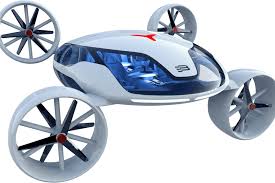
Breaking News
 Democrats Announce State Of The Union Response Will Be Delivered By Bad Bunny
Democrats Announce State Of The Union Response Will Be Delivered By Bad Bunny
 American Attack on Iran: World War
American Attack on Iran: World War
 If You Think the US Wants To Bring Democracy to Iran, Watch What They're Currently Doing to Iraq
If You Think the US Wants To Bring Democracy to Iran, Watch What They're Currently Doing to Iraq
 The Scary Truth About Living in Big Cities During the Turbulent Times Ahead
The Scary Truth About Living in Big Cities During the Turbulent Times Ahead
Top Tech News
 New Spray-on Powder Instantly Seals Life-Threatening Wounds in Battle or During Disasters
New Spray-on Powder Instantly Seals Life-Threatening Wounds in Battle or During Disasters
 AI-enhanced stethoscope excels at listening to our hearts
AI-enhanced stethoscope excels at listening to our hearts
 Flame-treated sunscreen keeps the zinc but cuts the smeary white look
Flame-treated sunscreen keeps the zinc but cuts the smeary white look
 Display hub adds three more screens powered through single USB port
Display hub adds three more screens powered through single USB port
 We Finally Know How Fast The Tesla Semi Will Charge: Very, Very Fast
We Finally Know How Fast The Tesla Semi Will Charge: Very, Very Fast
 Drone-launching underwater drone hitches a ride on ship and sub hulls
Drone-launching underwater drone hitches a ride on ship and sub hulls
 Humanoid Robots Get "Brains" As Dual-Use Fears Mount
Humanoid Robots Get "Brains" As Dual-Use Fears Mount
 SpaceX Authorized to Increase High Speed Internet Download Speeds 5X Through 2026
SpaceX Authorized to Increase High Speed Internet Download Speeds 5X Through 2026
 Space AI is the Key to the Technological Singularity
Space AI is the Key to the Technological Singularity
 Velocitor X-1 eVTOL could be beating the traffic in just a year
Velocitor X-1 eVTOL could be beating the traffic in just a year
HyPoint's "turbo fuel cells" promise huge range and power for eVTOLs

Weight is everything in aviation, and it's even more important when you're talking about energy-intensive vertical takeoff and landing like the coming eVTOL air taxi contenders are promising. Nearly every company on that list is building its prototypes using lithium batteries, but the simple fact is, lithium batteries have terrible energy density.
Commercial air taxis will need to fly all day, not spend long hours hooked up to charging stations, so every company that's planning around lithium is praying for a magical new chemistry to emerge from a test lab that doubles or triples the capacity of the best batteries available today.
That may well happen, but hydrogen is beginning to look like an excellent alternative. It's a pain in the butt when it comes to ground transport, but in electric aviation it might find a perfect use case. It offers much higher energy density, promising excellent flight endurance, and it lets you fill up with fuel in minutes, just like topping up your car's gas tank.



